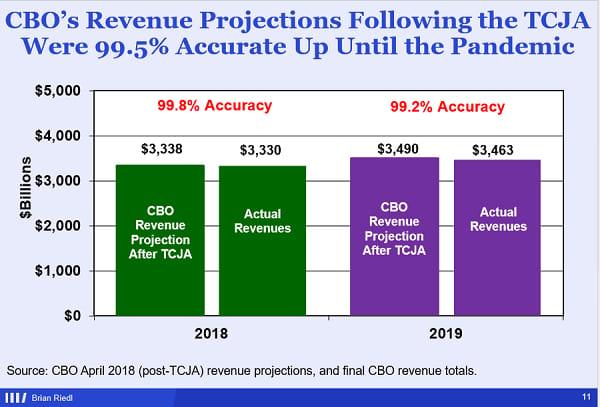
The Congressional Budget Office estimates that the Republican reconciliation bill currently under consideration in the Senate will add nearly $3 trillion to the national debt over the next 10 years, with $2.4 trillion of that total coming from the bill’s provisions and the rest from the added cost of interest payments on the growing national debt. Many Republicans, however, dispute the analysis, with some saying the bill would actually reduce debt and deficits in the long run once a range of factors, including economic growth and tariff revenues, are taken into account. At the same time, they have attacked the CBO directly, questioning its nonpartisan character and accusing it of liberal bias while claiming that its track record is so bad as to be disqualifying.
Along with many other fiscal experts, Jessica Riedl, an analyst at the conservative Manhattan Institute, has defended the CBO’s political neutrality and its projections. On Friday, Riedl posted this chart showing the accuracy of the CBO’s score of the 2017 tax cuts. “CBO projected post-TCJA revenues with 99.5% accuracy up until the pandemic,” she wrote, adding that the pandemic and the resulting massive increase in federal spending affected the economy so dramatically that earlier projections became less relevant.
Riedl added a general note that tax cuts do not pay for themselves, no matter how much Republicans insist that they do, and that even conservative economists have concluded that the GOP reconciliation bill would increase deficits. “Want a better score?” she wrote. “Draft a better bill.”
